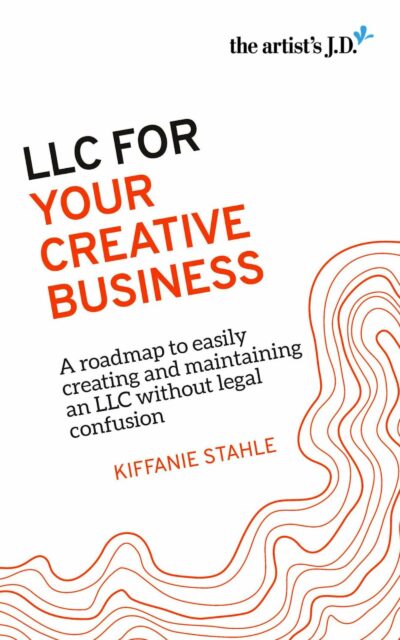When it comes to legal business types you have four major choices:
- sole proprietorship
- partnership
- limited liability company (LLC)
- corporation
As soon as you offer products or services, you automatically become a sole proprietorship or a partnership. (The first if you are on your own, the second if you are running your business with one or more friends.)
But like Michael Scott learned that you can’t just say, “I declare bankruptcy!” to declare bankruptcy in The Office. You can’t just say, “I declare an LLC!” and become an LLC. (Or a corporation.)
You have to take proactive action. And let your state know and follow the required steps.
And the reason businesses choose to file this paperwork (and comply with the additional ongoing legal red-tape) is that being an LLC or corporation puts a fence between your business and personal lives.
So that if something goes wrong in your business, those things in your personal life, your home, your savings accounts, your stock, if you live in a community property state your spouse’s income, all of those things are off the table if something goes wrong in your business.
And for the VAST majority of creative businesses, an LLC is better than a corporation.
And that’s because:
- it will give you just as strong as a fence
- there are fewer ongoing legal requirements
- you aren’t raising money via venture capital
But often I see creative business owners make the mistake of creating a corporation, because their accountant, tax professional, or someone else advised that they become an s corp.
And this is where it gets tricky because an s corp is an IRS-only designation. There is no way for you to go to your state form an s corp. If you do that, they’re going to tell you, “Here’s the corporation paperwork.”
But you don’t have to form a corporation to get the s corp taxation benefits. Both LLCs and corporations can tell the IRS that they want to be treated as an s corp.
The reason businesses tell the IRS to treat them like an s corp is because once you do, you are allowed to become an employee of your own business.
And at a certain income point, you pay a whole lot less in taxes if your income is taxed as a W-2 employee than you would if it was taxed at the self-employment tax rate.
But since this is a tax “loophole” that could easily be taken advantage of s corps have additional legal requirements and expectations.
Want help around all things LLC? Here are some resources:
- Not sure if an LLC is right? Check out our (free, no email required) definitive guide designed to help you decide if your creative business is ready for an LLC.
- Already an s corp? One of the IRS requirements is that you pay yourself a reasonable salary via a paycheck, including taking out any employment taxes. When I was an s corp, I used our partner Gusto to run payroll and if you use this Gusto link to sign up, we’ll both get $100 VISA gift cards. (< Affiliate link)
Are you overwhelmed by the legal jargon associated with creating an LLC for your creative business?

Do you wish you had a straightforward roadmap to feel confident that you created your LLC right (and know the expectations to keep it legit)? Then this is the book for you!
When you buy LLC for Your Creative Business, you’ll get my step-by-step guidance through the process of creating and maintaining an LLC for your creative business without all the legal confusion.
(If you use the above Amazon affiliate link, I’ll make a small commission, but it doesn’t change the price you pay.)

The latest from the artist’s Courtyard…

- Want to save up so you have a fund to create your LLC when it’s time? Check out this new LLC Costs chart that breaks down the costs to create an LLC (and any ongoing costs) for all 50 states and Washington D.C.
- We’ve got several upcoming events! Today is our usual Friday Rundown, on March 16th we have a co-working session, and April 6th is our Q&A session. View the event calendar.
- Ask Kiff is back! Got a question you want me to answer? Leave it here.
- Let’s talk automation! This week’s question is all about what you automate (or want to automate) in your business. Chime in here.
Not a member yet? You can join for $45/month and get access to dozens of resources and our private (non-Facebook) online community. Join today.
